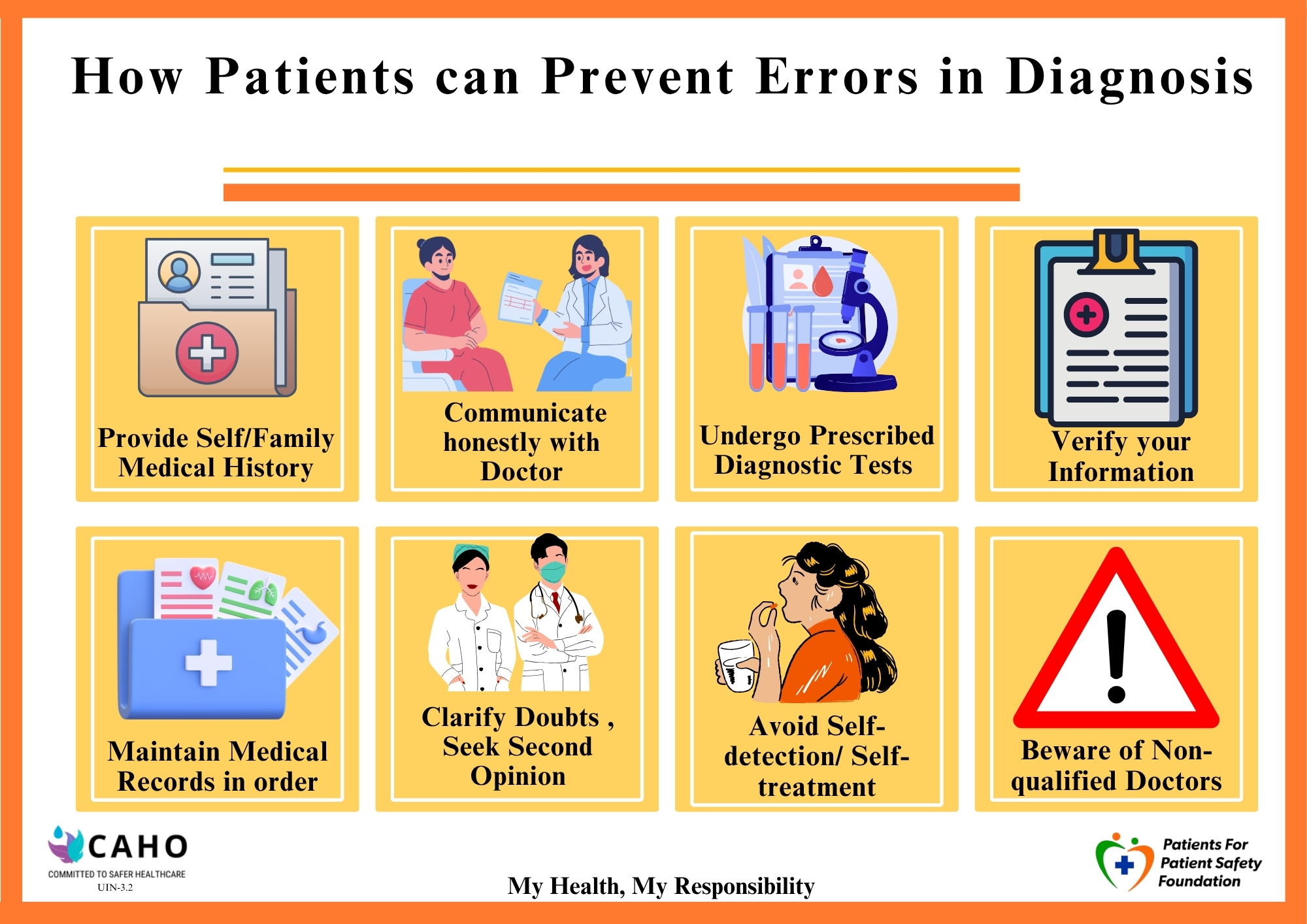Your active role as a Patient can
help prevent Diagnostic Errors
Introduction:
Diagnostic errors, such as missed, delayed, or
wrong diagnoses, are a major cause of medical
harm worldwide,
Diagnosis errors occur anywhere in the health
care system in hospitals, doctors, clinics, nursing
homes, pharmacies, and also at patients' homes.
These errors occur despite the best efforts of
doctors and patients, often due to factors such as
time constraints, incomplete or incorrect
information, limited access to diagnostic tests, or
even errors in clinical judgment.
By keeping yourself informed and engaged in this critical phase, you can help
your doctor make an accurate diagnosis and ultimately prevent errors.

Here is what you can do:
- Provide complete and accurate medical history, including past and
current medical conditions, medications, allergies, and family history.
Make a summary of your medical history and treatment for the physicians
to consider.
- Have clear, complete, and open communication with the doctor. Do
not hide anything. Share any self-diagnosis and self-medication,
including duration, and relief/side effects.
- Undergo tests/ investigations prescribed: Investigations and tests
provide additional data for the doctor to make an informed decision. Get
them done immediately from a renowned lab/facility.
- Ask questions about your diagnosis, treatment options, prescribed course
of action, time for treatment, and finances required. Find out what to
expect as a result of your treatment, along with any risks and side effects.
- Seek a second opinion if you are unsure about a diagnosis, particularly
in case of a serious illness or treatment plan like surgery. A second
opinion can help to generate an alternative treatment plan or confirm and
reassure that the existing plan is the most optimal.
- Bring a trusted companion: A family member or friend can help listen,
take notes, ask questions, and remember details, especially if you are
feeling unwell or anxious.
- Avoid self-detection and self-treatment with internet searches or word-
of-mouth suggestions, as this will not be a comprehensive assessment. It
can further deteriorate your health and delay proper treatment.
Correct diagnosis is most critical in determining the right treatment, play an
active role, and reassuring yourself.



